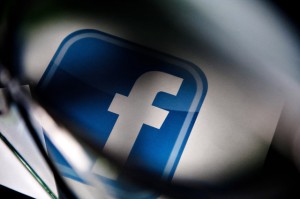 The Commission to Determine the Instances of Criminal Content (CDICC) is not a made-up commission, however awkward it sounds. It actually exists. And those on the commission do not want even high-level officials, including Foreign Minister Mohammad Javad Zarif, to use Facebook.
The Commission to Determine the Instances of Criminal Content (CDICC) is not a made-up commission, however awkward it sounds. It actually exists. And those on the commission do not want even high-level officials, including Foreign Minister Mohammad Javad Zarif, to use Facebook.In a thinly-veiled criticism of Zarif, secretary of the commission, Abdolsamad Khoramabadi, said: �A government official must not use such social networks when a legal authority, six members of which are cabinet ministers, have concluded that it is not the right thing to do.�
It is true that six cabinet members of Rouhani�s administration, including the ministers of justice, information, communications and education, sit on the commission, which is responsible for blocking parts of the internet. But the body, which has the power to decide what social networking or other sites Iranians can access, is also dominated by hardliners and fundamentalists.
Khoramabadi�s pronouncement overlooks the fact that the office of the Iranian Supreme Leader, Ayatollah Khamenei, uses Facebook, Twitter and Instagram. And Khamenei is not the only one: fundamentalists, including Mohammad-Reza Bahonar, deputy speaker of the parliament, also use social networking sites.
President Hassan Rouhani and Zarif�s deputy, Abbas Araghchi, are also active Twitter users. During last week�s World Economic Forum in Davos, Araghchi tweeted about the meeting. In recent months, the first vice president to Rouhani and his minister of guidance and culture published reports on Facebook. We should not forget, of course, that the minister is one of the 13 members of the CDICC.
The Zionist Conspiracy
In recent months, officials close to the Rouhani government have expressed hope that access to Facebook would be permitted in the near future. But Khoramabadi�s comments poured cold water on such hopes. �We have filtered Facebook and Twitter legally and strictly,� he told government-owned TV, �because the authorities decided that they were doing harm to Islam and the people�s rights.�
In the past, Khoramabadi had accused Facebook of being a spying tool for American security agencies and had called Mark Zuckerberg, its founder, �a 27-year-old Zionist.� Now he has embellished his story even further. �According to a list published by Zionist newspapers,� he told Iranian TV, �he is the fourth most influential Zionist in the world�.� �The prime minister of the Zionist regime is second on the list,� he added. He said that �when Shimon Perez, the president of the usurper Zionist regime, wants to go to California, he declares that �I want to visit this good Jewish boy.�� According to Khoramabadi, Perez has visited Facebook�s offices and has praised the site �as a tool for social transformation�, encouraging others to do the same.
In September 2013, Khoramabadi told the Fars News Agency, which has close ties to Iran�s Revolutionary Guards, that they would soon �investigate the content� on social media profiles used by �certain cabinet ministers�, including Facebook profiles. Following this, Rouhani�s vice president said the same thing. The results of the investigation have yet to be published.
Some government officials close to Rouhani maintained that the only pages on social networking sites that should be filtered are those featuring illegal content. But this was not good enough for Khoramabadi. �Taking into account the immensity of Facebook, its billions of pages and the vast variety of its content, distinguishing between what is legal and what is illegal is practically impossible.�
�Native� Social Networks
Officials who support Iran�s practice of filtering social networks justify their position by making reference to the Supreme Leader. �The American government was hoping to overthrow the Islamic Republic system by using media such as Facebook and Twitter. Such stupid and foolish ideas. They arrayed all their tools against the Islamic Republic. Sanctions were only one of those tools.�
This statement was enough for some of the officials who had previously defended Facebook to take back what they said, including the minister of culture and guidance, who said that he had stated a personal view but would follow the law like everybody else.
Officials who support censoring the internet and social networks have no specific suggestions for young Iranians and others who want to use virtual networks such as Twitter and Facebook. They merely say that domestic networks should be strengthened and people be made aware of the dangers of Facebook. In the same vein, Khoramabadi has described mosques as the most important �native� social network. �Our young people and athletes refuse to compete with Zionist competitors,� he explained, �and I think it very unlikely that when they understand the nature of Facebook they would want to sign up.�
It was not long ago that Ali Jannati, Rouhani�s minister of Islamic guidance and culture, made an inspiring prediction. When the English-language news service�Al-Jazeera asked him when Iranians would be able to use Facebook or Twitter without filtering, he answered, �I think all Iranians are using it right now. According to statistics, four million Iranians are on Facebook and are active on it. Sooner or later this barrier against using Facebook will have to be removed.�
But it is turning out to be later, much later, than expected.
By Iran Wire�
The Iran Project is not responsible for the content of quoted articles.










